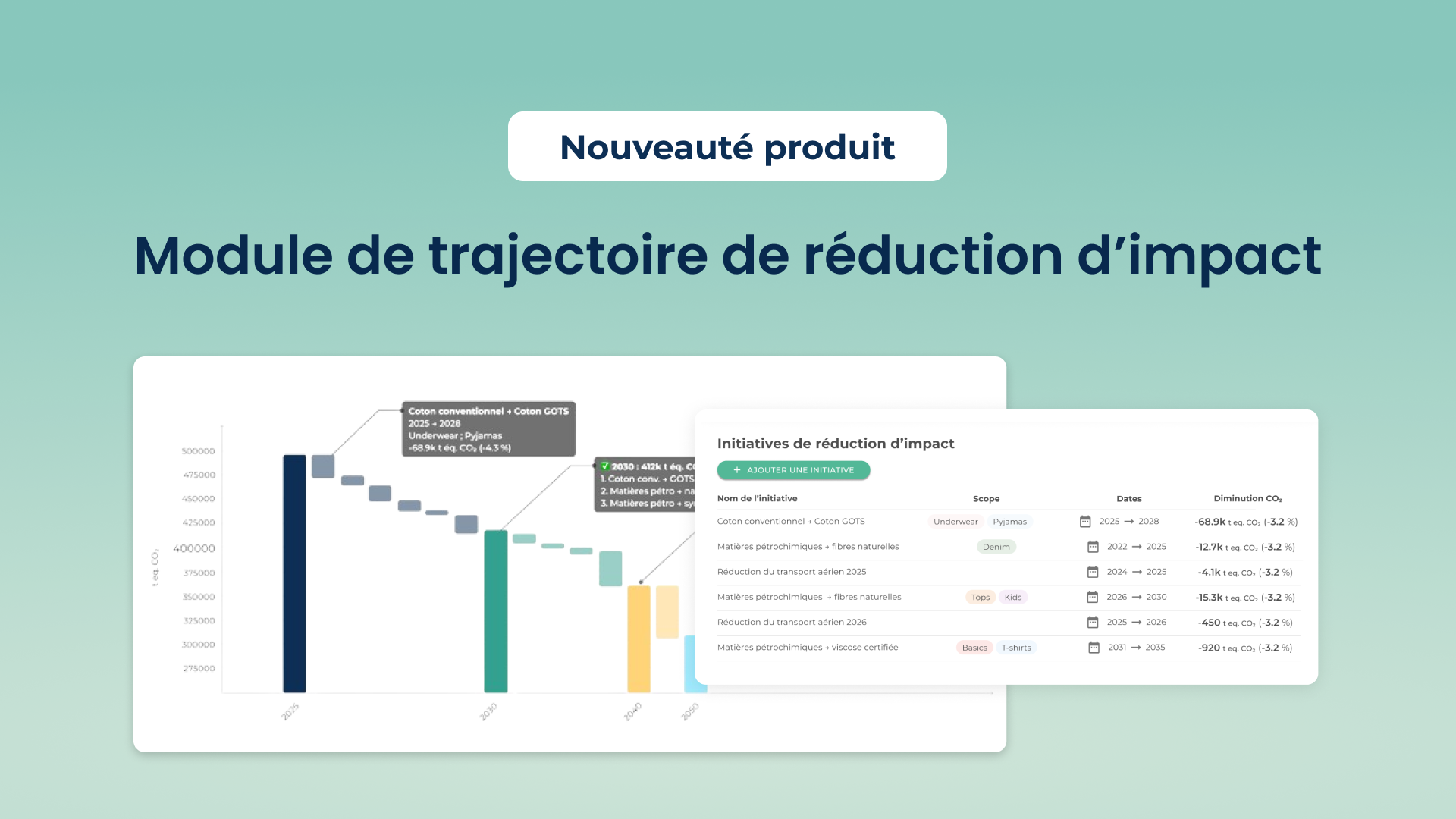Since January 2025, celio, France's leading men's ready-to-wear brand, has been working with Waro to structure and manage its long-term climate strategy. The aim of this strategic partnership is to turn environmental data into a daily decision-making lever within the brand.
By choosing Waro, celio is relying on expert support and a data-driven approach to build a realistic climate trajectory, get its business teams on board with eco-design, and effectively meet future regulatory requirements.
Three months after the launch of the project, we look back at the ambitions of this partnership, the first concrete results, and the challenges ahead.
Collaboration objectives :
By working with WARO, celio aims to move forward on 3 strategic pillars:
- Model a low-carbon trajectory aligned with SBTi criteria, then build a costed action plan to achieve targets.
- Equip group leaders and buyers with an eco-design tool, enabling them to simulate the environmental impact of products right from the design phase.
- Produce a complete carbon footprint for 2025, including a detailed scope 3.
Three months of collaboration and already concrete results
Building celio's low-carbon path
One of the structuring aspects of the project was the construction of celio's low-carbon trajectory, aligned with the Science-Based Targets (SBTi) initiative. This approach, carried out in partnership with EcoAct, was based on a dual principle: scientific rigor and operational realism.
This work began with :
- Import and analysis of an entire year's product data (to establish the reference year) on the Waro platform,
- Identification of key emission items, in particular item 3.1 (purchases of goods and services), which represents the bulk of scope 3 at Célio,
- Modelling of several reduction scenarios: absolute reduction, intensity per product or economic intensity.
Once the initial scenarios had been established, the project team was able to :
- Identify the main impact hotspots (raw materials, finishing processes, air transport)
- Test various concrete initiatives on purchasing families to feed the low-carbon trajectory of scope 3.
- Quantify the impact reduction potential of the various initiatives (in kg of CO₂ avoided).
All this work has enabled us to build a credible action plan, combining environmental ambitions with operational constraints (margins, industrial feasibility, deadlines).
The trajectory is currently being finalized with Morgan Delemazure, Purchasing Director, to challenge its operational realism. It will shortly be presented for final approval to the Chairman and CEO, as well as the Executive Committee.
"I'm very impressed with the platform. The very detailed use of data enables us to better understand where our impacts lie, especially in our very complex industry. The simulation tool is a real decision-making aid, enabling us to make truly informed choices and avoid transferring impacts." Pétronille Ricard, celio CSR Director.
Understand celio's business processes and realities to offer a customized approach
The Waro team took the time to meet with the CSR, traceability and purchasing teams to understand how the company worked and lay the operational foundations for the project:
- Targeted training for CSR and traceability teams and first Group Managers
- Meeting with the purchasing department to understand collection cycles and sourcing issues
- Suggested milestones to structure support around key moments: upstream of product development and throughout the year.
This preliminary work enabled us to build a tailor-made support package, designed to be integrated into business processes.
"It's the first tool I've seen that meets the needs of CSR, buyers and eco-design all at once. It's really designed for all professions". Mélodie Remy, CSR & Quality Manager at celio
What's next?
- Bring all business teams directly onto the platform, enabling them to carry out simulations and integrate environmental criteria into their day-to-day decisions .
- Carry out a full carbon balance for 2025, including a detailed scope 3, to manage indirect emissions linked to the value chain .
- Steer the action plan and initiatives that make up celio's low-carbon trajectory to enable them to achieve the targets set.
Behind the operational stakes, one of the key success factors of this partnership lies in the commitment of the entire company to the project. While the CSR teams play a real coordinating role, the supply management, purchasing, quality and group managers are directly involved in the approach.

.png)
.jpeg)






